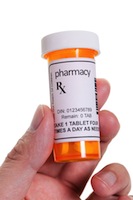
Although SJS can result from infection, medications are the leading cause, with over 100 drugs linked to the potentially fatal disease. Among these are acetaminophen, a pain reliever found in many prescription and over-the-counter products, and non-steroidal anti-inflammatory drugs like ibuprofen and naproxen.
SJS is a milder form of toxic epidermal necrolysis, a potentially fatal condition wherein the top layers of skin detach from the lower layers, leaving the body vulnerable to infection. Those fortunate enough to survive SJS often face long-term complications of the skin and eyes, including eruptive lesions, ocular scarring, and even blindness. Patients and families of patients who developed SJS after taking certain drugs have filed Stevens–Johnson Syndrome lawsuits. SJS lawsuits allege that drug manufacturers failed to adequately warn patients and doctors about the risks their medications posed.
If you or a loved one was diagnosed with SJS after taking ziprasidone or another drug, contact Lopez McHugh now to discuss your case free of charge with an SJS attorney. You may be eligible to receive compensation through your own SJS lawsuit.
